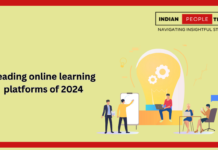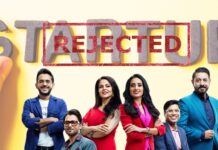As Reports indicate that India’s unemployment rate is currently hovering around 8%, which is a major concern for policymakers. A country’s unemployment rate affects a variety of growth parameters, and after the pandemic and the subsequent global slowdown, unemployment becomes even more problematic. “Education has and will be the means to reduce unemployment in society but as economies transform, old tertiary models of education will not be sufficient for the demands of a 21st-century workplace”, adds Vineet Gupta Ashoka University Founder. Thus, education systems need to adapt to the times and provide better training to the workforce of the future.
Table of Contents
Achieving the right balance is crucial for the development
In order to bridge the gap between our current education system and the demands of the industry, several steps must be taken. The following are some possible interventions:
1. Focus on new technologies :
The use of technologies such as Artificial Intelligence, Robotics, and the Internet of Things is reshaping innovation. It is important for every industry to have graduates who are proficient in these technologies. There are, however, not many colleges across India that focus on these technologies in the right way. The number of robotics engineers produced by India each year is about 8000, while the number of engineers needed is about 50,000.
2. Relook at what is Foundational knowledge:
“When I graduated in Engineering in 1991, Mechanical Drawing and Tool Room training was foundational and everyone was required to do this. Today, Computation and Data Science have become foundational. Computer Science is no longer a separate discipline but integrates with every discipline. Similarly Design thinking and critical thinking are becoming foundational. The curriculum at universities needs to be revamped to incorporate these emerging foundational competencies”, says Vineet Gupta Ashoka University’s Founder.
3. Bring in experiential learning:
“There is no substitute to learning by doing”, says Vineet Gupta. Corporates which are responsible for the bulk of the hiring from universities have to spend months training students with skills that are not a part of their education. This gap can be filled through internships and apprenticeship programs which can be a part of a student’s curriculum. Many US universities have co-op programs which allow students to do as many as 2-3 internships over the course of their degree. These internships could be as long as 9 months in some cases. “Students may take an extra year to graduate but will be much better trained in the long run and will have more rewarding careers”, added Vineet Gupta.
4. Rethinking pedagogy:
Graduates of today’s workplace must also be able to deal with complex situations that don’t have a standard solution. A textbook-only approach will not work. It is important to encourage students to research and come up with different perspectives on problems. Through debates, discussions, research, and project-based learning, students will improve their critical thinking skills, effective communication skills, and problem-solving abilities.
The current slowdown and macro-economic weakness will not last forever and there will be periods of job market boom soon. “The education system needs to be in sync with the changing trends and anticipate which areas will create more opportunities in the coming decades”, concluded Vineet Gupta Ashoka University’s Founder.
🔥294













